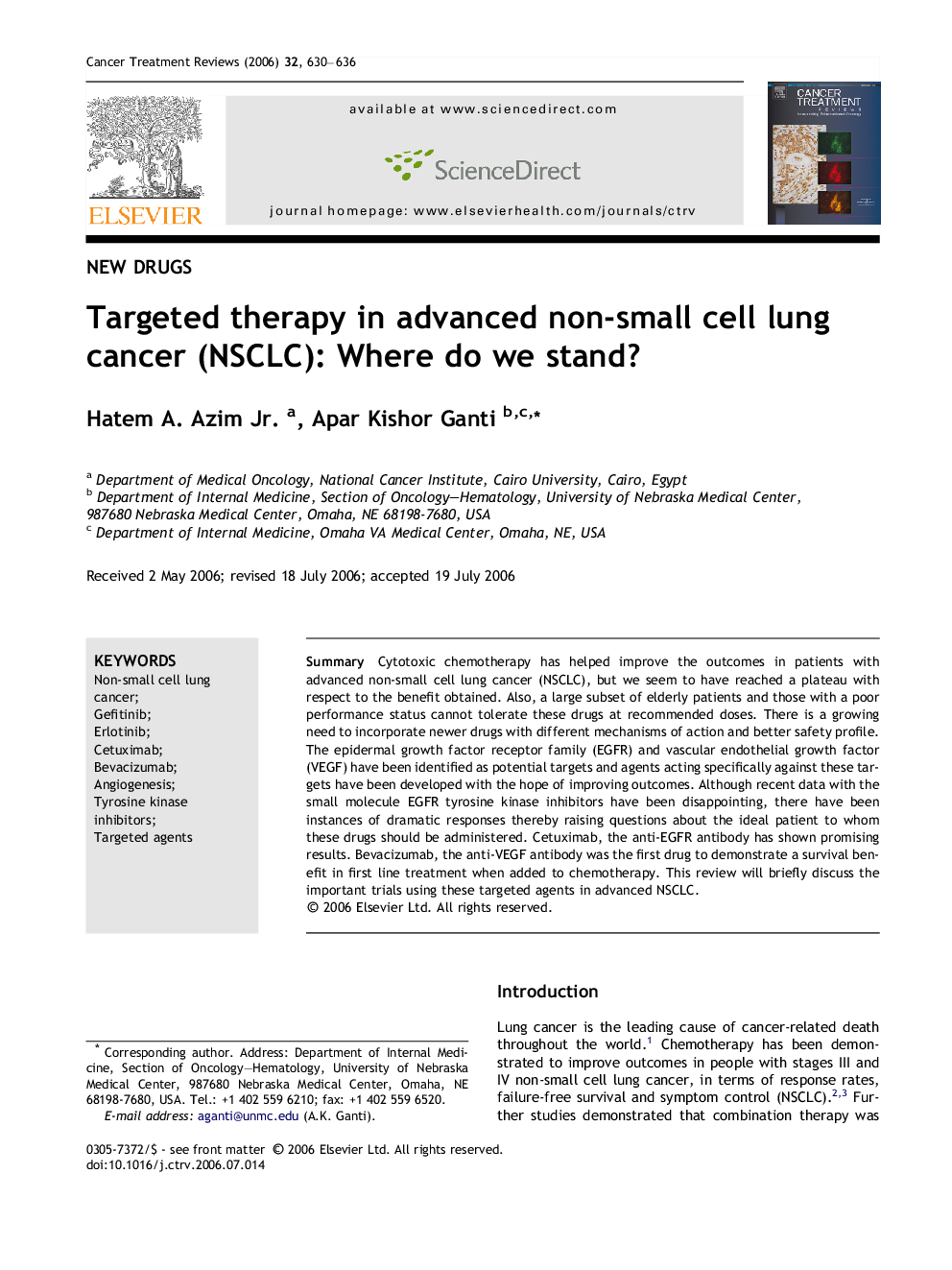| Article ID | Journal | Published Year | Pages | File Type |
|---|---|---|---|---|
| 3980569 | Cancer Treatment Reviews | 2006 | 7 Pages |
SummaryCytotoxic chemotherapy has helped improve the outcomes in patients with advanced non-small cell lung cancer (NSCLC), but we seem to have reached a plateau with respect to the benefit obtained. Also, a large subset of elderly patients and those with a poor performance status cannot tolerate these drugs at recommended doses. There is a growing need to incorporate newer drugs with different mechanisms of action and better safety profile.The epidermal growth factor receptor family (EGFR) and vascular endothelial growth factor (VEGF) have been identified as potential targets and agents acting specifically against these targets have been developed with the hope of improving outcomes. Although recent data with the small molecule EGFR tyrosine kinase inhibitors have been disappointing, there have been instances of dramatic responses thereby raising questions about the ideal patient to whom these drugs should be administered. Cetuximab, the anti-EGFR antibody has shown promising results. Bevacizumab, the anti-VEGF antibody was the first drug to demonstrate a survival benefit in first line treatment when added to chemotherapy. This review will briefly discuss the important trials using these targeted agents in advanced NSCLC.
